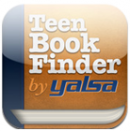
Facebook Twitter Pinterest Flickr Google+ YouTube Instagram
Written on: September 30th, 2012 in Blog Posts, Q & A's

Q: “Please tell me the process and documents required to leave instructions as to what is to happen to my animals should I pass away before them.”
Consideration for our pets’ well-being while we are their caregivers may very well extend into a time when we are gone and they are still living. Here are some resources to help with planning for this possible situation.
The American Humane Society offers a good starting place, with an article on their website called “Providing for Your Pet’s Future Without You.”
Although this article is dated 2010, the information it gives is pertinent today. The document linked in that article offers ideas for notifying emergency personnel, and for giving specific information about your pets to family, neighbors and friends.
Information about leaving a trust fund can start with a site devoted to laws and animals, called “Animal Law: Animal Legal and Historical Center” from Michigan State University’s College of Law. As the site states, “A pet trust allows a person to set aside a sum of money to care for the pet.” I limited my search on this site to Delaware and Trusts/Wills and came to a page that describes how to get started by Rebecca F. Wisch.
An article posted in the Seattle Times by Neena Pelligrini called “Legal Q&A: Pets, wills and animal trusts (July 16, 2012) , describes what commonly happens to pets when no will or legal arrangements have been made; that “generally will treat the animal companions as estate property, passing to heirs per the state’s intestacy laws”. The article gives guidelines for how to leave enough provisions for each pet, to help ensure they are taken care of for their normal lifespans. For example, a rule of thumb for determining a well funded trust is to calculate an average expense of $1,000 per year.
The American Association of Retired Persons (AARP) also offers tips for caring for pets when they outlive their owners with an article called “In Pets We Trust” by Laura Daily (2008). The article mentions a DIY (do-it-yourself) kit for creating a trust in accordance with the state in which you live. They also suggest to “name someone other than the caregiver as trustee to dole out the cash. This reduces the risk of someone taking the money, but selling or destroying your pet.”
The ASPCA offers a Pet Trust Primer by Kim Bressant-Kibwe, Esq. which gives succinct considerations for helping to ensure the trust you may establish is thorough and complete.
Finally, for Delaware residents, Trusted Pet Partners gives specific instructions in accordance with Delaware State law called “Responsible Pet Parenting” by Chris Jones (2012).
These resources should give you enough information to be able to make informed decisions for establishing a plan for your pets’ care if you happen to outlive them, whether you have parrots, horses, dogs, cats, turtles or other common animal companions. Thank you again for asking!
Feel free to come back to your Delaware Library if you have more questions, anytime! We appreciate your service in person and online through our 247 Ask a Librarian Delaware virtual reference service at:
http://lib.de.us/askalibrarian
We’re glad to be of assistance!
Written on: September 23rd, 2012 in Blog Posts, Q & A's
 Q: “Why do some people have terrible breath?”
Q: “Why do some people have terrible breath?”
According to medical resources such as the Mayo Clinic, there are a variety of reasons why a person’s breath may smell bad, ranging from poor dental care to what that person just ate or drank. When it’s an ongoing condition, it can be an indicator of an underlying illness. It is also known as “halitosis.”
Another basic definition is given by Merriam-Webster’s online dictionary.
The main causes of bad breath all focus on a person’s mouth. Dental hygiene is touted as the the most common cause as well as the most treatable prevention, as explained by WebMD . They include dry mouth, post nasal drip, and some respiratory illnesses (like pneumonia). Of course, tobacco use is another reason for stinky breath.
It’s interesting to note that some foods, such as garlic and onions, have a double way of causing bad breath. The first is through their odor lingering on a person’s tongue and mouth. The second is through the process of absorbing and digesting odoriferous foods, as explained on MedicineNet.
Sometimes we can’t tell if our own breath smells bad. According to MedicineNet, the most common method used (cupping your hand and breathing into it, then quickly smelling it) is not a good indicator. MedicineNet recommends licking the back of your hand, then letting it dry and taking a whiff (or asking someone you trust to be honest).
Halitosis doesn’t have to be an ever-lasting problem, and all sources seem to agree that the best way to create sweet-smelling breath is to brush and floss, use an antibacterial mouthwash, have regular dental check-ups, and to generally be in good health. Further reading on MedicineNet gives tips for how to control bad breath Your sweetheart, family, friends, and colleagues will be grateful!
Thank you for asking, and please feel free to come back to your Delaware Library anytime with questions. We appreciate your service in person and online through our Ask a Librarian Delaware virtual reference service at:
http://lib.de.us/askalibrarian
We’re glad to be of assistance and we’re 247!
Written on: September 16th, 2012 in Blog Posts, Q & A's
Q: “ Hello, my 12 year old would like to know how to search our public libraries for books by category. i.e. fantasy, adventure books in her age group. Can you tell her how to search?”
Thank you for asking about how to find out about books for a twelve year old’s pleasure reading interests. There are a few ways to find recommendations. One is through searching on the catalog, and there are excellent reading lists (which I’ll provide later in this email).
1. We’ll start with Novelist: Delaware Libraries also has a great database that is well known for being able to provide recommendations. The database is called “Novelist” and there are two versions: Novelist Plus (general) and Novelist K-8 (designed for young people in grades Kindergarten through eighth grades). I’ll give you the steps for accessing it as well as how to use it so that you and she can refer to this anytime. You will need your library card and PIN.
These are found through the Delaware Libraries’ site at:
Look for the orange tab above called “eMagazines & More” (http://lib.de.us/index.php/ebooks-more/) and click on that.
Then, click “Reading Recommendations” – it’s the last option (http://lib.de.us/index.php/ebooks-more/#11) in the list.
Click on “Novelist K-8” to start and you’ll be prompted to log in using your 14 digit library card number (with no spaces) and PIN.
You can limit the search by age group, such as ages 9-12, or teens on the top area. On the left, you can search by genre, so if she is interested in Fantasy or Humor, for examples, you can check the boxes.
You can also put in key words in the search box, such as “magic, historical, girl hero, Europe” and see what comes up. When I did this with teens and fantasy checked, “Fortune’s Fool” by Kathleen Karr came up as an option.
Another way to use this is to put in a title of a book she liked, and then Novelist will recommend another similar to it.
What is also nice about this database is that it will directly link to the Delaware Library Catalog so that you can just click to find out if it is on the shelf at your local library, or place a hold to have it sent there.
For your information, Novelist also gives Lexile ratings based upon reading levels. Some schools use this as a way to help students move forward in learning new vocabulary words and concepts.
2. Reading Lists and an App: There are a couple of reading lists I’d like to recommend too. One is from Teenreads, a great online site.
What you can do is to take a title that appeals to her, and then plug it into Novelist to see a summary about it as well as if it is in our catalog.
Goodreads is another online site that compiles lists. Many librarians are connected and familiar with Goodreads, but as a social site, it’s good to keep in mind that it is open to all. Goodreads is an online place where registered users post books they have read and rate these, and give their own comments, recommendations, and summaries.
The American Library Association’s Young Adult services group (YALSA) also has a tremendous amount of information. Here is the link to YALSA’s Teens’ Top Ten.
Finally, in case your daughter uses apps on her mobile device, there is the YALSA “Teen Book Finder“.
It just started this year, and of course it’s free, too.
3. Using the catalog:
When you search on the Delaware Libraries Catalog, you will see the “Custom Search” feature, linked below the main search fields. In here, you can select the subject (fantasy), and type of item (book), as well as the audience (teen/young adult). I searched the catalog with these limiters and came up with over 1500 books!
Since there were so many options, further considerations can help narrow down the list. When the “limit search” feature is selected, additional limiters can be applied.
Thank you for asking, and please feel free to come back to your Delaware Library anytime with questions. We appreciate your service in person and online through our Ask a Librarian Delaware virtual reference service at:
http://lib.de.us/askalibrarian
We’re glad to be of assistance and we’re 247!
Written on: September 9th, 2012 in Blog Posts, Q & A's

Q: “I have heard that using lip balm can cause a dependency on it. Is that true?”
Now that fall is around the corner and with it, jackets, scarves and lip balm, I was curious about the facts behind this alleged myth. In my search for reliable information about the ingredients and use of lip balm, I came across an amazingly relevant book in our Delaware Libraries’ catalog: “Can you get hooked on lip balm: ten cosmetic scientists answer your questions about the lotions, potions and other beauty products you use every day” by Perry Romanowski (2011, by Brains Publishing). Topics include caring for your hair, nails, skin, makeup, products, fragrances and more. The authors of this fun compilation have also created the website, “thebeautybrains.com“.
On page 106, the authors describe the lip balm process. It somewhat appears to be a dependency issue in that, according to the authors, “When you apply lip balm, you’re creating a barrier layer that prevents, or at least retards, the evaporation of moisture from the inner layers of the skin.” This interrupts the body’s automatic signal to create new cells and when that happens, lips can feel dry. If the process of applying lip balm is continuously repeated, you can imagine that, “…yes, you can train your body to rely on lip balm.”
The authors also mention a site called “Lip Balm Anonymous“. It is an entire website devoted to everything lip balm related, from Carmex to Burt’s Bees. The site has a “self test” to help give users an idea of how ‘addicted’ they are to their Chapstick. (Note: I’m using “addicted” very loosely.) According to their posts, it can take up to a week of non-use to feel like a person’s lips are back to normal.
The Washington Post is one of a few journals that have carried articles about lip balm dependency. One big piece of advice they offer is to simply drink more water. Actually, this makes sense since, in the colder months, heaters dry up the air inside our cars, homes, schools and offices. The article, “How to get over your lip balm addiction” was published in 2008.
Finally, Snopes is a good source for getting to the bottom line about such urban myths. The authors address the lip balm addition issue on this “definitive Internet reference source for urban legends, folklore, myths, rumors, and misinformation” site. Their conclusion is that there is absolutely no evidence to support an addiction to lip balm (Carmex was their balm of choice) in their May 2011 posting, “Carmex Addiction“. Of course, the myth they bust includes the idea that Carmex was using some type of irritant in its product to somehow generate a need for use.
But if the need for use is self-generated, as the authors of the book, “Can you get hooked on lip balm?” offer as an interesting argument, the main things to do include keeping ourselves hydrated and using the balm sparingly.
If you ever want to find out the truth about such rumors and urban legends, ask a Delaware librarian anytime in person at your local library, or online through our live online Ask a Librarian Delaware library service at:
http://lib.de.us/askalibrarian
We like your questions and we’re glad to be of assistance!
Written on: September 7th, 2012 in Blog Posts, News
 We all have dreams about the future — for ourselves, our families, and our communities. The dream of Delaware Libraries is to help our state become an even more vibrant and prosperous place where all dreams are realized.
We all have dreams about the future — for ourselves, our families, and our communities. The dream of Delaware Libraries is to help our state become an even more vibrant and prosperous place where all dreams are realized.
Share your dreams for yourself and your community in our new interactive forum. Delaware Libraries and our partners want to help facilitate conversations, learning opportunities, and community collaborations that enable you and others to maximize your unique talents (whatever you geek!) and achieve your Delaware Dream.
The Delaware Dream Interactive Forum
In this interactive forum, we want to hear about your dreams – the individual hopes as well as collective vision that we’re calling the Delaware Dream. In addition to submitting your own ideas, make sure to vote on other people’s ideas, and you’ll help to create a list of the public’s favorite.
Delaware Libraries is waiting to hear about your dreams, so please share and help us make the Delaware Dream a reality.
Written on: September 2nd, 2012 in Blog Posts, Q & A's
Q: “Last Friday [August 31, 2012] there was a Blue Moon. What exactly does that mean? The full moon looked pale yellow-white as usual so what’s the blue part?”
The meaning of the “Blue Moon” has evolved. The most commonly accepted modern definition is to call the second full moon in our calendar month a Blue Moon. This occasionally happens, as it did on August 31st. We’ll have another in July, 2015 (see below for details).
Prior to our modern understanding, Blue Moons were a seasonal, not calendar, occurrence.
According to the Sky and Telescope’s article, the Maine Farmer’s Almanac referred to moons by their seasonal names such as “Sturgeon Moon” for August and “Harvest Moon” for September.
A season is comprised of three months, and when there were four full moons, the third one was called a “Blue Moon”. This kept it from being confused with the traditional full moon names. The Farmer’s Almanac online offers a list of full moon names.
Just for the record, the color of the moon is normally white to pale yellow, with moon-rises and –sets sometimes as orange and red as a showy sunset. NASA offers a brief but thorough explanation about the rare bluish coloration of the moon, but, as further explained by Dr. Tony Phillips on his site, Space and Weather, this can be due to the amount of dust and particles in the air, such as from a recently erupted volcano. Space and Weather also has “Blue Moon Stories” about such sightings.
Did you miss it? Unfortunately, you’ll have to wait a while. The next Blue Moon isn’t until July 31, 2015. Interestingly, a software coder named Guy Ellis offers a formula for determining the upcoming Blue Moons (all time is UTC) on his blog.
The next one after that isn’t until 2018. Be sure to mark your calendars!
For more information about Earth’s natural satellite and other celestial phenomenon, the Delaware Library Catalog (DLC) has books and items at your fingertips.
Just go to the catalog and search for relevant subjects, such as “moon” or “space”. Using the Custom Search feature, you can limit your search to non-fiction items to find astronomy-related books. Learning about the moon and stars can be a rewarding hobby, and there are many opportunities to further your interest, from books from the library to visiting Mount Cuba’s observatory in Greenville, Delaware.
Thanks for asking! If you have more questions please feel free to ask a Delaware librarian, anytime. You can do this in person at your local library, or online through our Ask a Librarian Delaware virtual reference service at:
http://lib.de.us/askalibrarian
We’re glad to be of assistance and we’re 247, even when we’re gazing at the stars!